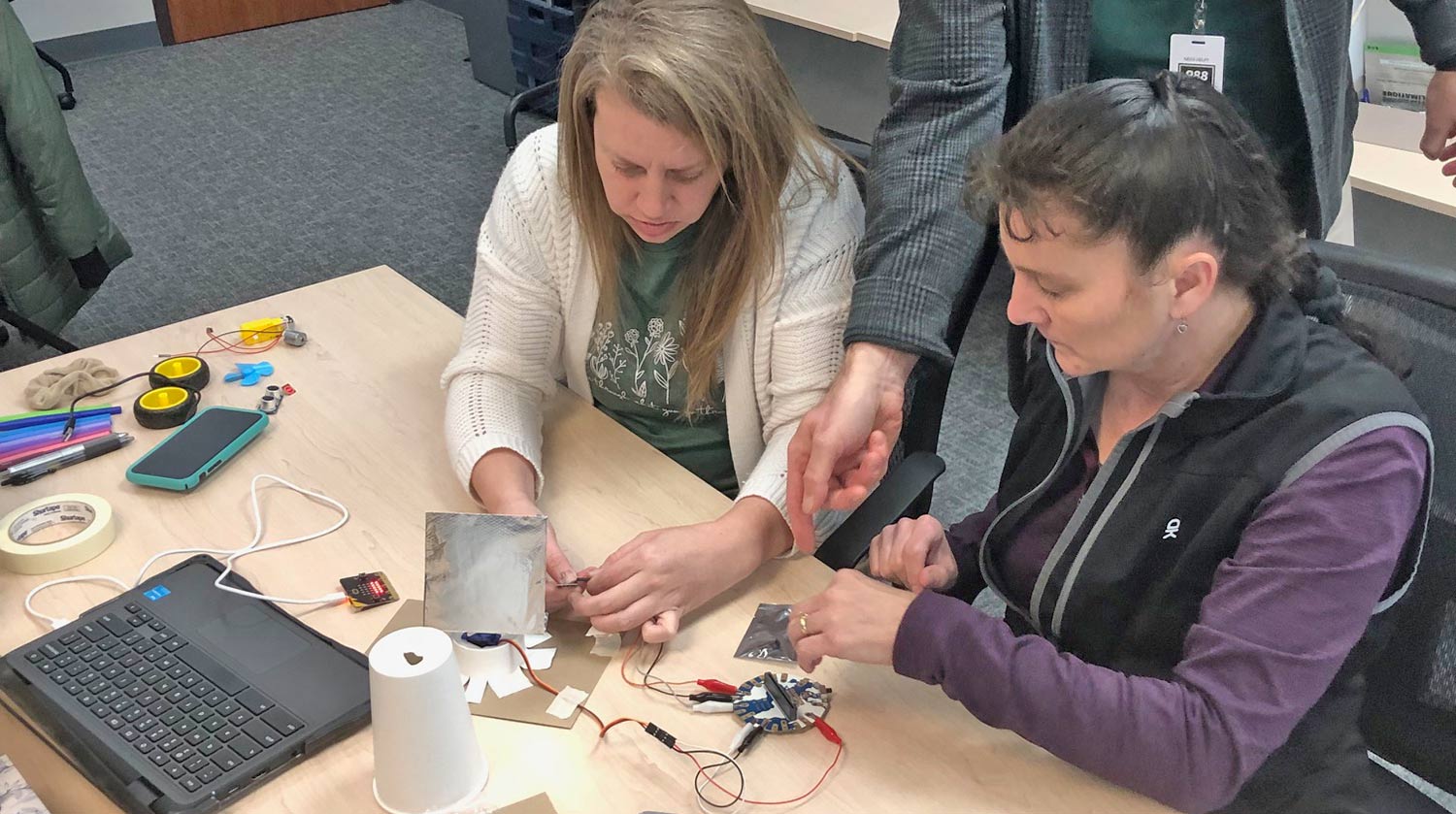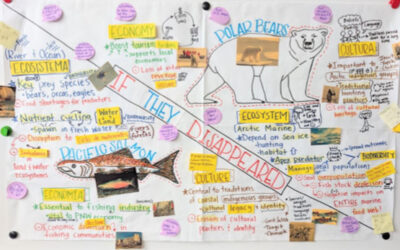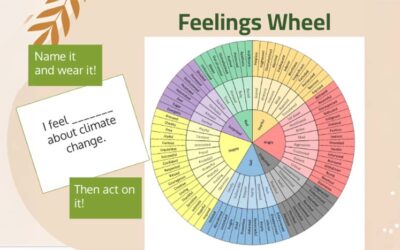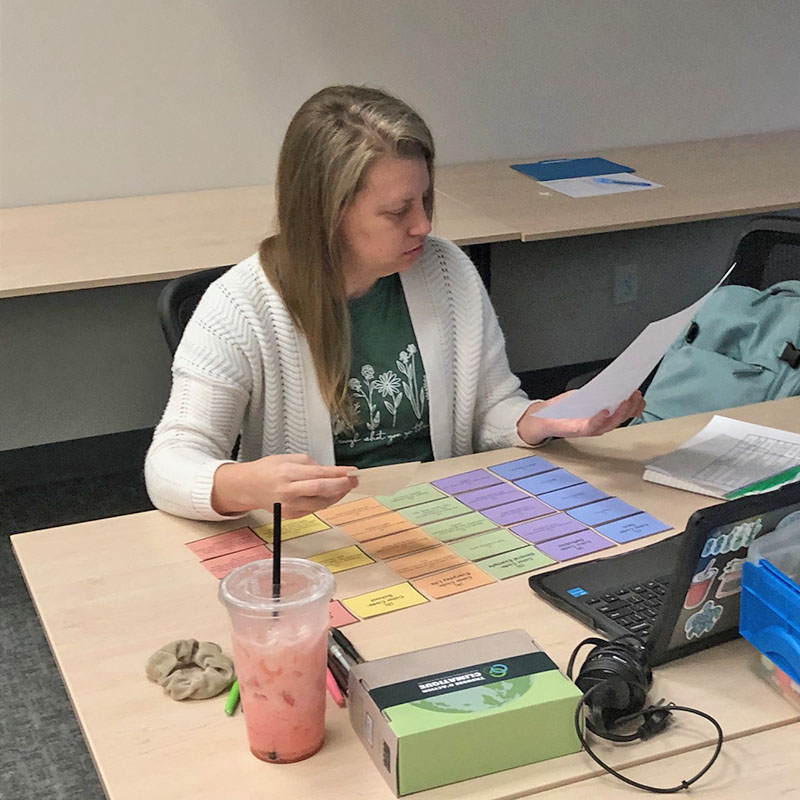
Teachers building and coding a solar panel
In our ever-changing digital society, we can all benefit from understanding how computers and coding shape our world. To break down stereotypes primary and secondary students may have about technology and computer science, this project engages them in coding. Based off the success and feedback from participants in the prior year, this project was offered a second year. This was a tremendous opportunity for the ESD 105 Regional Science Coordinator, Luke Matlack, and the ESD 105 Computer Science/Ed Tech Coordinator, Mike Batali, to collaboratively support teachers with the integration of computer science, computational thinking, and climate science.
In this two day professional learning opportunity, participants explored strategies for integrating both micro:bit and Climate Action Kit into their science classroom instruction. Participants learned about how computational thinking can be emphasized, and gained a strong understanding of how the Washington State Science Standards (NGSS) connect with both the Washington State K-12 Computer Science Learning Standards as well as the Educational Technology Standards.
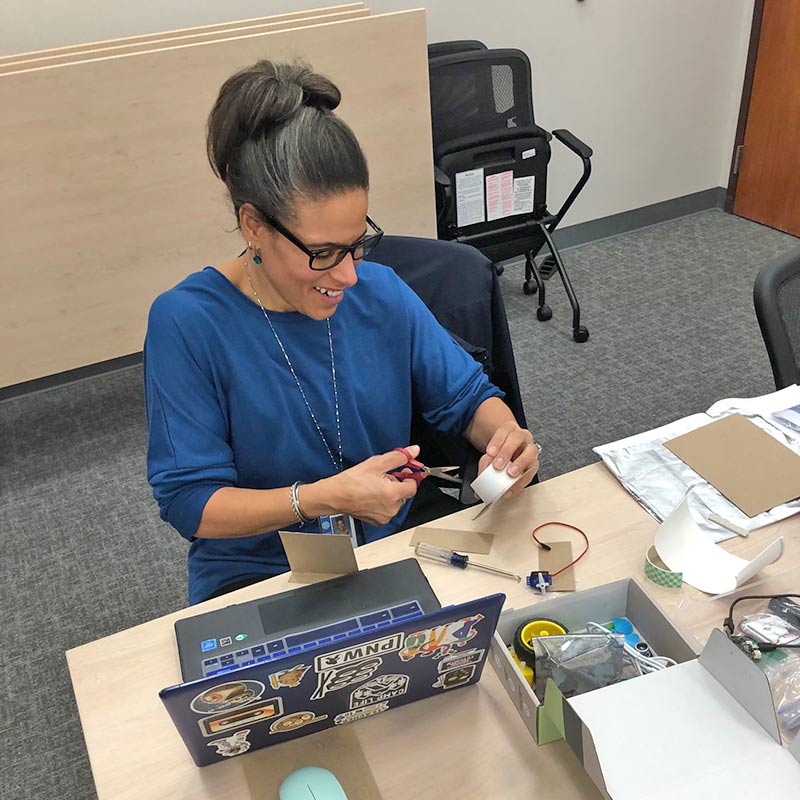
Building and coding a solar panel
During the first session in January, participants learned about the four pillars of computational thinking (Decomposition, Pattern Recognition, Abstraction, Algorithmic Thinking) and considered where they exist in their classroom. Working in teams, participants engaged in a giant paper airplane challenge where they applied the “pillars” of computational thinking. Participants then spent time becoming familiar with block based coding using a micro:bit. Once familiar with the micro:bit and how it works, participants engaged in a challenge to create and code an automated plant watering system using both the micro:bit and the Climate Action Kit.
During the final session in February, participants worked through curriculum and challenges from the Climate Action “Land” and “Energy” kits (which were provided for participants) as they integrated computer science and coding with science in the areas of agriculture, deforestation, wind energy, solar energy, and electric vehicle systems.
In a survey following the session, ALL participants shared that this professional learning experience has impacted their confidence to successfully implement and integrate computer science in their classroom.
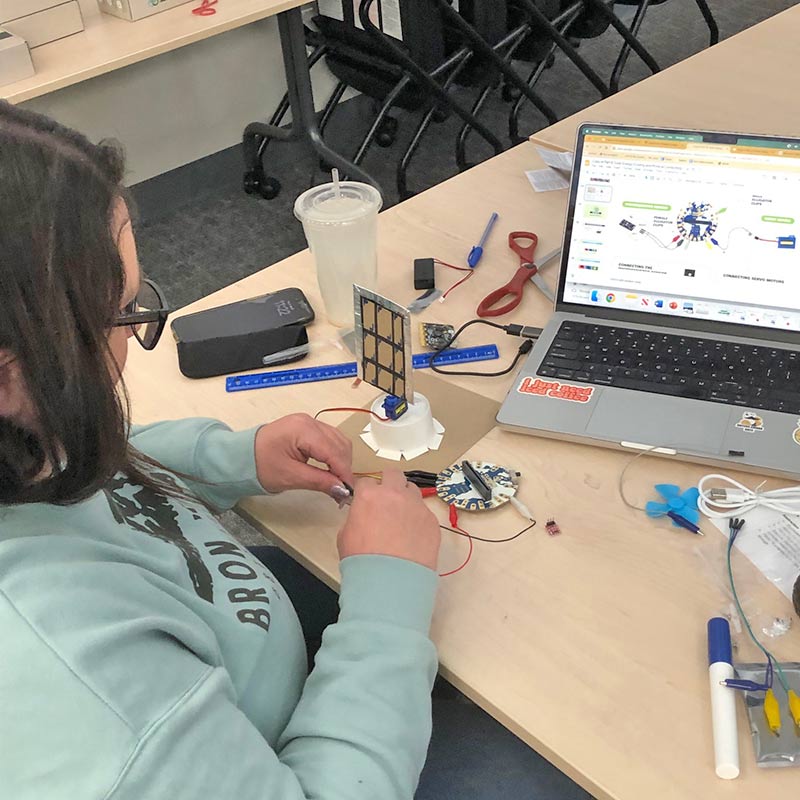
Connecting the solar panel to the micro:bit
A few quotes from participating teachers:
“I have implemented and plan to implement all the pieces I learned/experienced in the 2 day sessions”
“I was out of my comfort zone and this exposure helped. Very organized with the support that was needed”
“This was a very engaging learning opportunity. Thank you both for your time and creativity”

